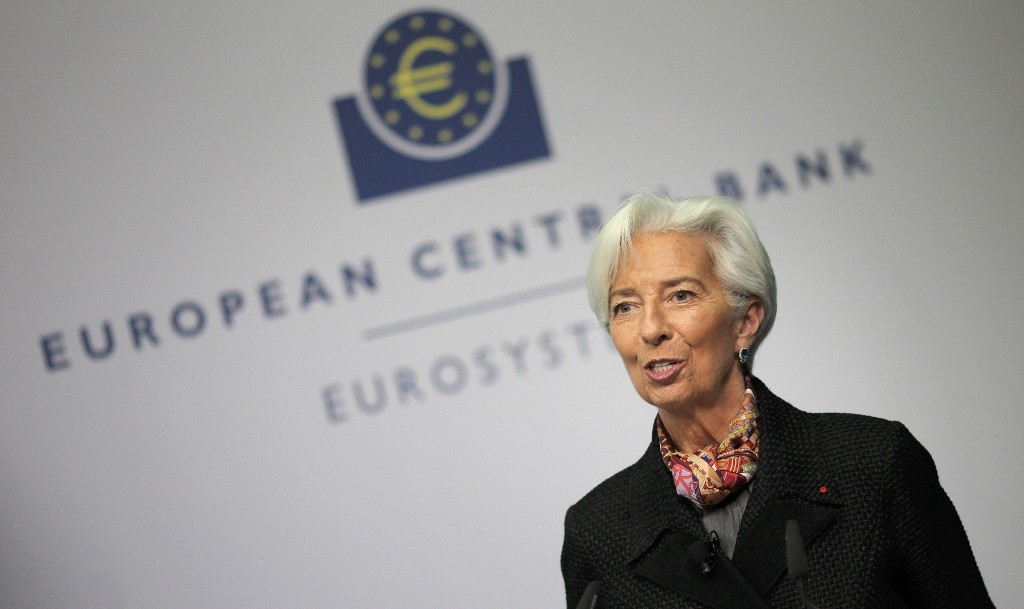European Central Bank head Christine Lagarde hailed a proposed 500-billion-euro Franco-German EU coronavirus recovery plan on Monday as a needed show of solidarity at a time when the economy is on its knees.
“The Franco-German proposals are ambitious, targeted and welcome,” Lagarde said in an interview with four European daily newspapers.
“It is testimony to the spirit of solidarity and responsibility” evoked by Merkel recently, Lagarde said in remarks to France’s Les Echos, Italy’s Corriere della Sera, the Handelsblatt for Germany and El Mundo for Spain.
Without it, there would be no prospect of increased financial solidarity and coordination, she added.
Lagarde said Europe had been hit by a shock “unequalled in times of peace,” warning that in the worst case, the economy could shrink by 15% in the three months to June alone.
The Franco-German fund will notably be financed by joint EU borrowing, up to now a red line for Germany and its fiscally hardline allies in the bloc but pressed for by Italy and Spain, some of the worst affected countries.
Lagarde also said that the coronavirus crisis would be a good occasion to modernise the EU’s Stability and Growth Pact, its core economic policy guidelines which notably set limits on member states’ budget deficits and accumulated debt.
The Stability and Growth Pact has effectively been suspended by the crisis, with Brussels agreeing to allow the 27 members to go way beyond such spending and borrowing limits as they try to get their economies going again.
“I think that the terms of the Stability and Growth Pact ought to be reviewed and simplified before it is put back in place when we have got out of this crisis,” Lagarde said.
The pact requires member states to keep their annual budget deficit below 3% of annual economic output, with accumulated debt limited to 60% of GDP.
Designed to ensure public finances are strong, critics say the limits – widely breached over the years – put member states in a strait jacket, especially at times of crisis when the bloc should really have more flexibility.
During her time as head of the International Monetary Fund (IMF), a post she held before moving to the ECB, it had argued for just such changes.
AFP
























